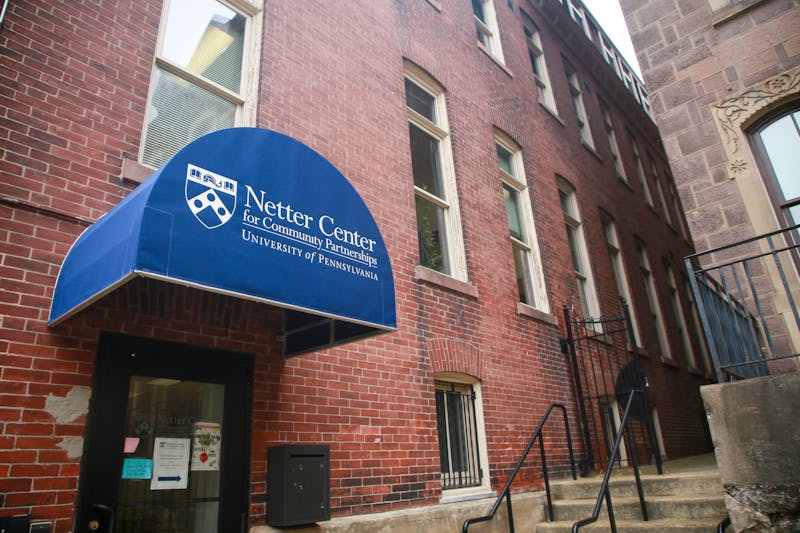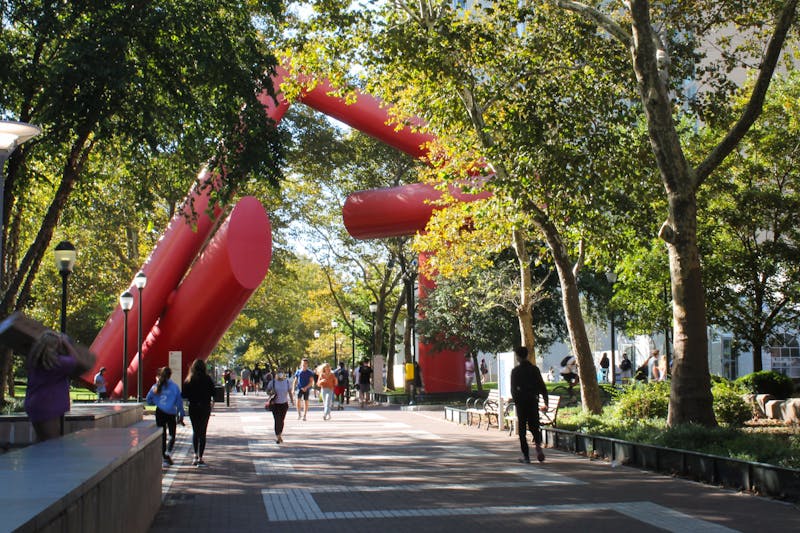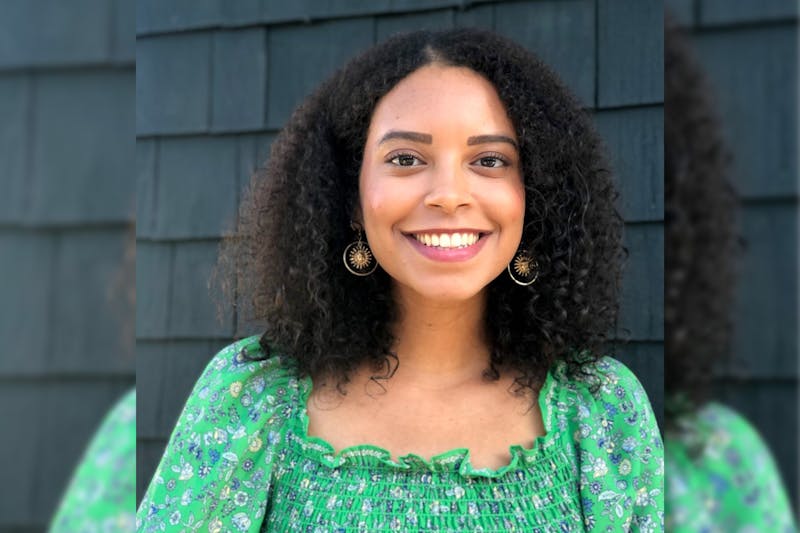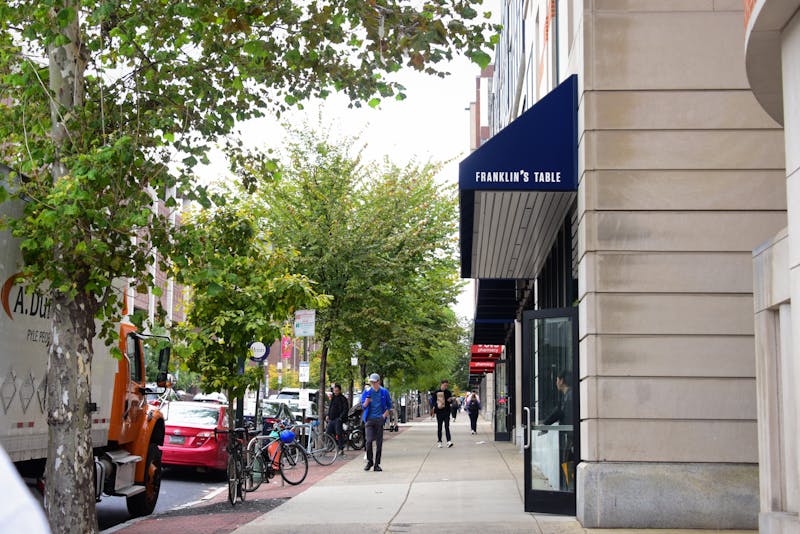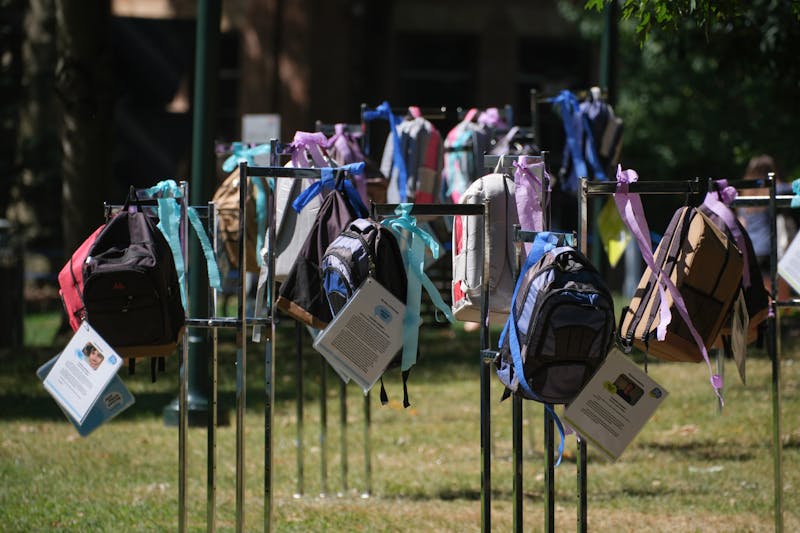
The Penn Center for Public Health and Penn Farm are collaborating to host a free farmers market every Tuesday at Johnson Pavilion.
Credit: Riya MitraA free farmers market is providing fresh food from Penn Farm to Penn community members every Tuesday at Robert Wood Johnson Pavilion.
The program, which is a collaboration between the Penn Center for Public Health and Penn Farm, starts every week at 11:30 a.m. and runs until the produce is gone. Since it opened in mid-September, the market has been welcomed by the Penn community, with 30 to 50 students and staff picking up produce every week.
The Free Farmers Market aims to combat food insecurity, helping community members eat healthier at no additional financial cost.
Frankie Cameron, program manager with the Penn Center for Public Health and Free Farmers Market program director, works with West Philadelphia public schools to manage their sex education programs. They recounted a recent in-class demonstration with cucumbers at an elementary school, after which students asked if they could eat the cucumbers out of hunger.
Cameron said that they hope to combat similar issues that students face on Penn’s campus. While many food nutrition projects focus on undergraduates, Cameron said they hope that the new farmers market will expand access to food to graduate students as well.
The market uses a "take what you need, and leave enough for others" system, which Cameron said will help combat a broader American culture that perpetuates the idea that basic rights need to be earned.
“When people aren't able to live healthy lives, that's not the individual's fault,” Cameron said. “It's a systemic failure. In American society, there’s this idea of bootstrapping and having to earn things like food, housing, and income, rather than those just being inherent human rights. The more communities engage in mutual aid, the more we can try to move away from that culture.”
Masters student Bella Min said that she usually buys her vegetables from the supermarket, and the program has allowed her to save money while eating healthier.
“I'm feeling that I'm becoming healthier and eating more in a more healthy way,” Min said. “I’m getting that kind of feeling of ‘Ah, I'm living a better life right now.’”
The initiative has been benefitting volunteers as well as community members.
Masters student Semanti Pathak said that volunteering has allowed her to immerse herself in the Penn community. Coming from an undergraduate program with a tight-knit community, Pathak said that the work has helped her overcome her nervousness about finding a role on Penn’s larger and bustling campus.
“It feels really good to be part of something,” Pathak said. “I enjoy that new role that I'm occupying, building rapport with people, and recognizing faculty and students that I would otherwise never really interact with.”
Pathak added that she sees community service initiatives as “mutually beneficial relationships where we're all building something together.”
She particularly enjoys hearing about community members’ cooking expertise, as well as sharing that knowledge with students less familiar with produce.
“Seeing people in their incipient stages of planning their next meal is really fun,” Pathak said. “Some people are learning how to cook for the first time, and some people want to cook, but don't. When interacting with all of these people, you get such a wider picture of the amalgamation of their different personalities and how they're interacting with food.”
The Daily Pennsylvanian is an independent, student-run newspaper. Please consider making a donation to support the coverage that shapes the University. Your generosity ensures a future of strong journalism at Penn.
Donate







